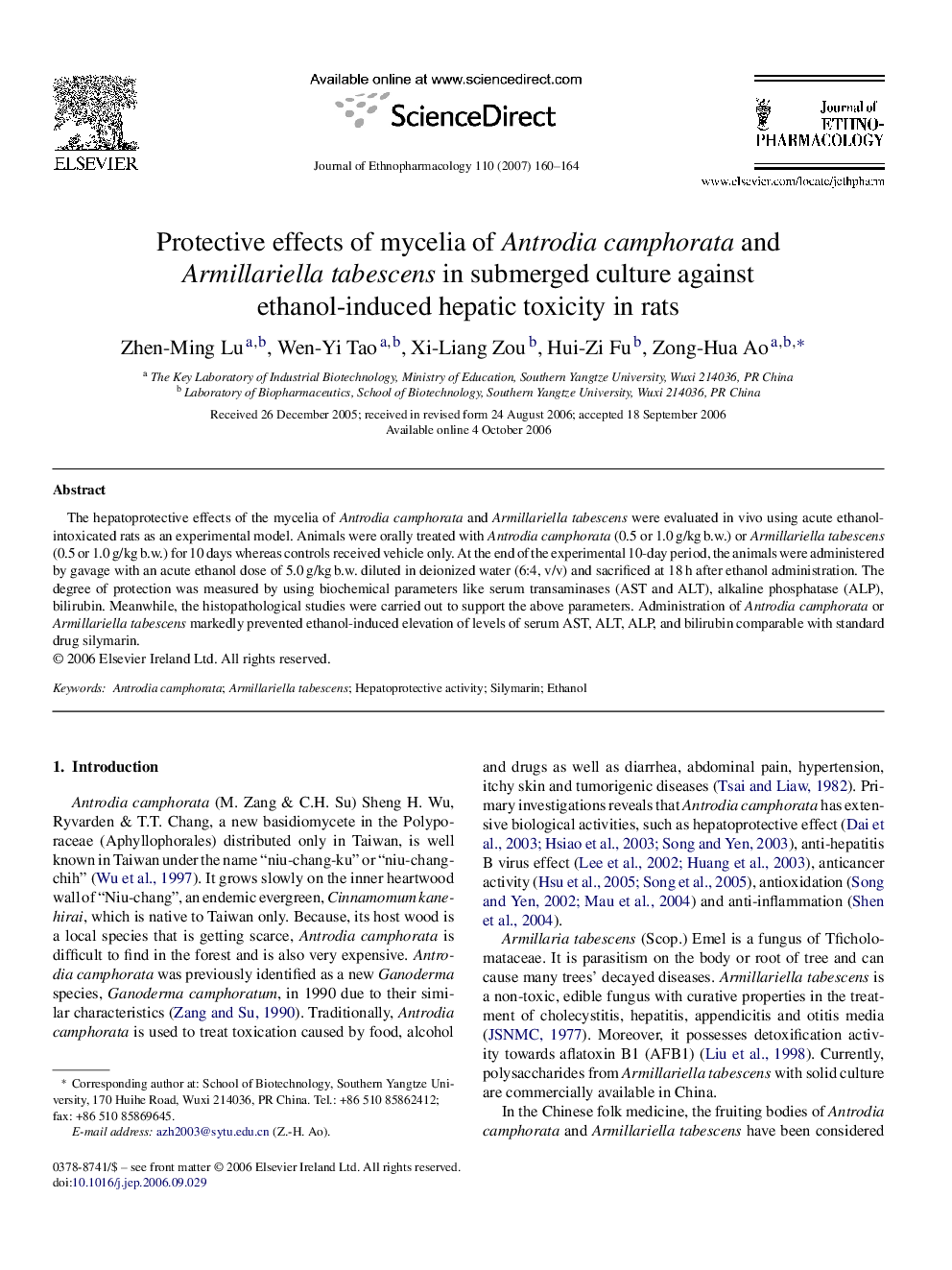| Article ID | Journal | Published Year | Pages | File Type |
|---|---|---|---|---|
| 2547176 | Journal of Ethnopharmacology | 2007 | 5 Pages |
The hepatoprotective effects of the mycelia of Antrodia camphorata and Armillariella tabescens were evaluated in vivo using acute ethanol-intoxicated rats as an experimental model. Animals were orally treated with Antrodia camphorata (0.5 or 1.0 g/kg b.w.) or Armillariella tabescens (0.5 or 1.0 g/kg b.w.) for 10 days whereas controls received vehicle only. At the end of the experimental 10-day period, the animals were administered by gavage with an acute ethanol dose of 5.0 g/kg b.w. diluted in deionized water (6:4, v/v) and sacrificed at 18 h after ethanol administration. The degree of protection was measured by using biochemical parameters like serum transaminases (AST and ALT), alkaline phosphatase (ALP), bilirubin. Meanwhile, the histopathological studies were carried out to support the above parameters. Administration of Antrodia camphorata or Armillariella tabescens markedly prevented ethanol-induced elevation of levels of serum AST, ALT, ALP, and bilirubin comparable with standard drug silymarin.
